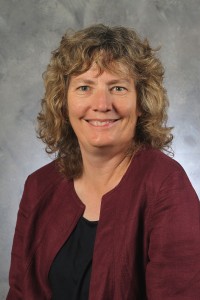UCCS faculty attracted $9.4 million in external research awards during the 2013-14 fiscal year, according to preliminary figures.
This year’s total is $1.6 million, or 17 percent, more than the $7.8 million in external research awards received during the 2012-13 fiscal year.
According to Kelli Klebe, dean, Graduate School, the funding reaches all aspects of the campus and allows faculty carry out the university’s mission and vision through funding research activities, instructional activities, child care, student support, services with community agencies and populations, joint ventures with industry and funding for students.
“Sponsored program activities help us to advance knowledge and to serve students,” Klebe said. “Our faculty and staff are receiving funding from highly competitive traditional sources of research funding but also from alternative sources which allow us to engage in research, creative works, and services within the community.”
According to the Office of the President, UCCS’ efforts were part of an $861.04 million total in research awards, and are the second best figure in CU history. In FY 2010, one-time federal stimulus dollars helped fuel research awards of $884.1 million.
Three of the four CU campuses – including UCCS – were beneficiaries of research award increases this year.
Fiscal year 2013-14 sponsored research funding across CU, broken down by campus:
- University of Colorado Boulder, $412.10 million, including a $5.5 million grant from the National Institutes of Health for research by Leslie Leinwand, Ph.D., into cardiac myosin genes. She studies genetic mutations that cause severe genetic heart disease, including hypertrophic cardiomyopathy – the leading cause of sudden death in young athletes.
- University of Colorado Colorado Springs, $9.40 million, including a two-year, $325,000 grant from the U.S. Department of Health and Human Services, Health Resources and Services Administration. The Department of Psychology will use the Graduate Psychology Education grant to prepare doctoral students in the clinical psychology program to deliver mental health services to older adults within integrated medical settings. These settings work to seamlessly combine mental and physical health care.
- University of Colorado Denver, $13.57 million, including a grant of just under $1 million that will boost the number of minority Ph.D. candidates in science, technology, engineering and mathematics – the STEM disciplines – at the University of Colorado Denver | Anschutz Medical Campus Graduate School. The two-year Bridge to the Doctorate Program is funded by the National Science Foundation under the auspices of the Colorado Alliance for Minority Participation.
- University of Colorado Anschutz Medical Campus, $425.97 million, including a $2.5 million award from the American Heart/Stroke Association and the Bugher Foundation. It forms the basis of the new University of Colorado Denver | Anschutz Medical Campus ASA/Bugher Foundation Stroke Collaborative Research Center of Excellence. Richard J. Traystman, Ph.D., and his research group are looking for a better understanding of and innovative treatments for stroke in children, who often are left with devastating lifelong consequences.
Sponsored research funding from federal, state and local agencies targets specific projects to advance research in laboratories and in the field. Research funding also helps pay for research-related capital improvements, scientific equipment, travel and salaries for research and support staff and student assistantships. CU cannot divert these dollars to fund non-research-related expenses such as utilities, compensation, student financial aid or grounds maintenance.
Much sponsored research funding is directed to departments and researchers with unique expertise, such as biotechnology and aerospace, which stimulates industry.
Through the CU Technology Transfer Office, CU research commercialization has led to the formation of 141 companies since 1994; nine start-up companies were formed in fiscal year 2013-14.


Leave a Reply